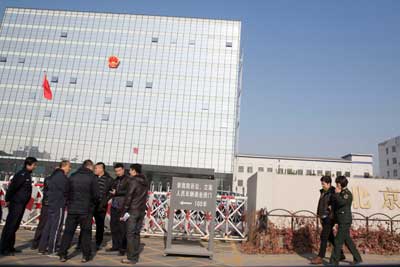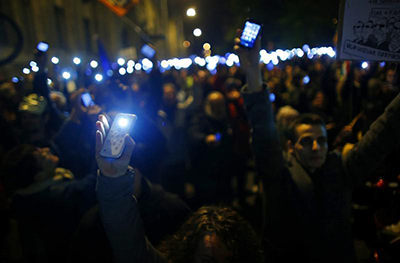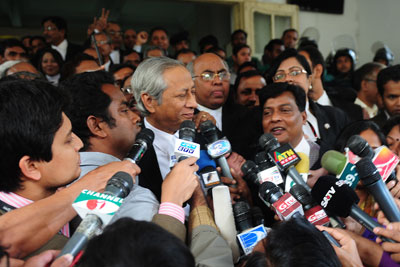
Mission Journal: Morocco’s new press law undermined by draft penal code
In the small, polished Moroccan capital of Rabat, pictures of King Mohamed VI, who took the throne in 1999, hang in many shops, offices, and hotels. In most of these, he is clean-shaven, smiling, and wearing a suit: a modern monarch. His image is part of the official narrative of the country as a place…

Global Magnitsky Act could be powerful weapon against impunity in journalist murders
Last week, the proposed Global Magnitsky Human Rights Accountability Act emerged from the U.S. House Foreign Affairs Committee with approval. The bill was passed by the Senate last year. If passed by the full House of Representatives and signed into law by the president, it has the potential to offer partial redress to one of…
CPJ joins call for Nigeria to drop anti-social media legislation
The Committee to Protect Journalists alongside 19 Nigerian, African and international organisations today signed an open letter addressed to the upper chamber of Nigeria’s parliament calling for the rejection of a bill which would undermine press freedom, stifle public opinion, and criminalize freedom of expression in Nigeria.
CPJ urges South Africa to revise cybercrime bill that limits press freedom
New York, December 10, 2015–The Committee to Protect Journalists calls on the South African government to revise provisions in the proposed Cybercrimes and Cybersecurity Bill that would limit journalists’ ability to work. Under the bill, journalists and members of the public could be prosecuted for possessing or disclosing state information, reports said.
CPJ calls on Togo president to reject law that would impose jail terms for journalists
Abuja, Nigeria, November 12, 2015–The Committee to Protect Journalists calls on the president of Togo to block a proposed article in the country’s penal code that would threaten press freedom. Under the proposed law, journalists could face jail sentences and fines for “false news,” according to news reports.

How China’s national security and cybersecurity laws will further curb press freedom
Convincing potential sources to share information and publishing independent journalism on social media or with the help of crowd-funding are a few of the practices that are likely to suffer under a pair of new Chinese laws–one passed, one still in draft form–local journalists tell CPJ.

French surveillance law passes National Assembly, but it’s not the last word
Until the last moment the opponents of a very controversial French intelligence bill tried to be heard. On Monday May 4 on the eve of the vote, activists kept calling deputies to convince them to reject the bill. They had no chance however, since the Socialist government could count on a solid majority from both…

Mission Journal: Creeping authoritarianism in Hungary
On the Buda side of the River Danube stands the glass and steel headquarters of the thriving German-owned entertainment channel RTL. On the Pest side of the Hungarian capital, tucked in a corner of a converted department store, lies the cramped office of struggling online news outlet Atlatszo.

Restrictive broadcast policy in Bangladesh raises concerns
This week, Prime Minister Sheikh Hasina’s cabinet approved a restrictive policy governing Bangladesh’s broadcast media. While the policy calls for the creation of an independent commission to oversee electronic media–a positive step, in principle–it’s unclear how and how quickly the commission will be formed. Meanwhile, the policy restricts what can be broadcast, raising red flags.